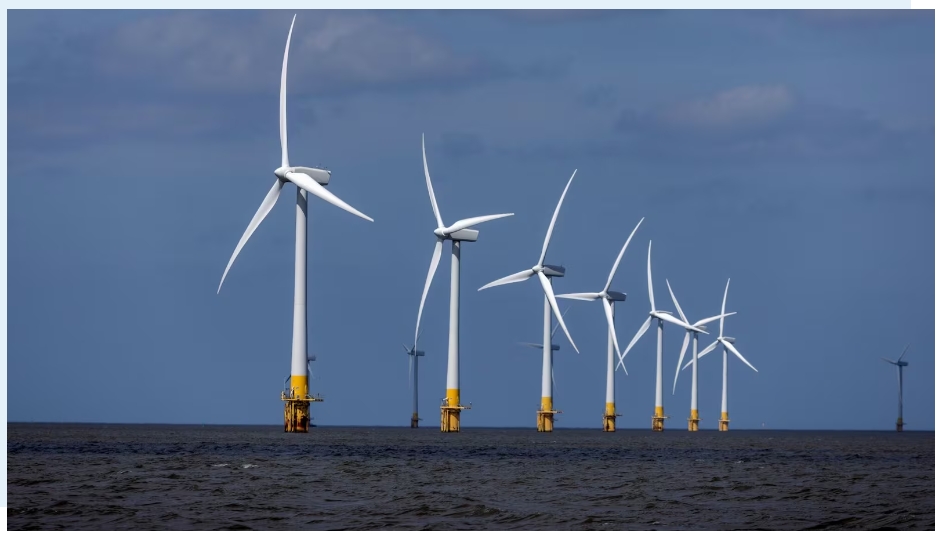
The effort will require an unprecedented expansion of various technologies to reduce demand for natural gas, according to the National Energy System Operator. The advice was commissioned as a first step toward delivering one of Prime Minister Keir Starmer’s signature election promises.
The operator designed two strategies for reaching this decade’s target, describing each as “challenging, but realistic and cost-effective.” One relies heavily on the expansion of renewable power, primarily offshore wind. The other depends more on plants that use carbon capture and hydrogen to reduce emissions.
“A clean power system can be achieved by 2030, but it is a Herculean effort,” said Claire Dykta, director of strategy and planning at NESO. “It requires delivery across multiple technologies at pace and all at the same time.”
The UK currently has about 15 gigawatts of offshore wind capacity, and the NESO plans would add either 28 gigawatts or 35 gigawatts, depending on which one is implemented. That’s still short of Labour’s campaign promise to quadruple offshore wind.
To be sure, the analysis shows what is possible and not what is likely. Even getting close to the goal requires overhauling the UK’s infrastructure planning process, increasing digitalization of an antiquated energy system and expanding supply chains to acquire enough equipment.
“NESO’s report shows we can achieve clean power by 2030,” Energy Secretary Ed Miliband said in a statement. “The government is determined to ensure the significant reforms to planning and grid we need so we can back the builders and support investors.”
To meet the deadline, offshore wind capacity needs to be secured in the next two allocation rounds for government backing of new green energy production. The government is expected to publish its own clean-grid blueprint in coming months.